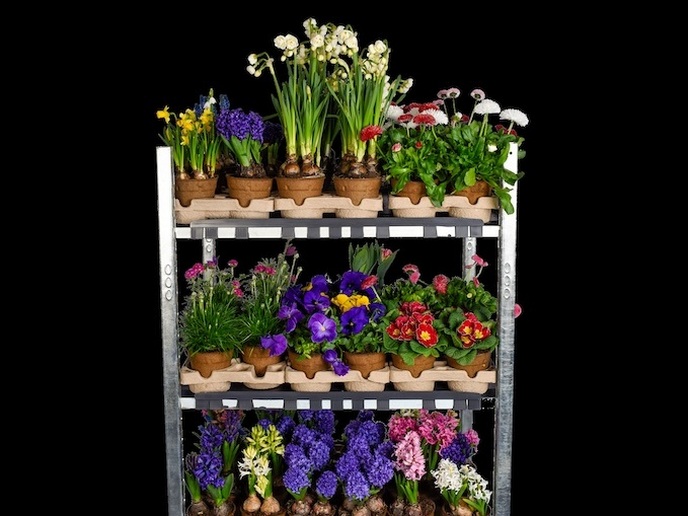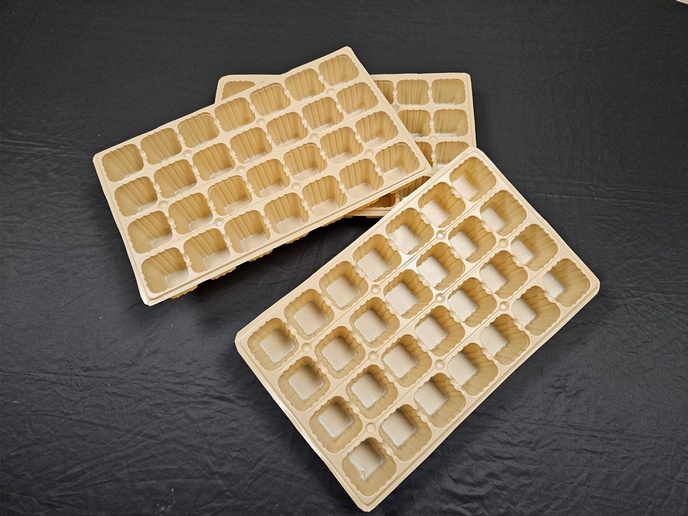Reducing plastic waste with bio-based biodegradable plant pots
Developing alternatives to plastic will help to reduce our reliance on fossil fuels, and tackle the growing problem of microplastic pollution. At present, only about a third of plastic waste in the EU is recycled. Microplastics are increasingly found in the environment, as well as in food and drinking water. “Bio-based polymers produced from biomass can help us to move away from using petrochemical feedstock,” notes PlanticsInside(opens in new window) project leader Geert Noordzij from Plantics(opens in new window) in the Netherlands. “A problem though is that not all of these polymers are biodegradable.”
Biodegradable alternative to plastic pots
The PlanticsInside project sought to address this challenge by creating products with a unique bio-resin, based on a revolutionary invention of the University of Amsterdam(opens in new window). In particular, the project team wanted to replace plastic plant pots with a biodegradable alternative. “Billions of plant pots end up as waste every year,” says Noordzij. “People bring them home from garden centres, and maybe put them in their mixed plastic waste bags. Very often though this plastic is not sorted, and is burned.” Plantics' solution was to combine this bio-resin with moulded paper, to produce a fully biodegradable plant pot with a natural look and feel. The pot can be put in the ground with the plant, where it decomposes in a similar way to organic waste.
Market buy-in for plastic-free pots
To be successful however, buy-in from the market is required. This EU-funded project enabled the company to build a flexible demonstrator plant, capable of producing around 10 million pots a year, to show the viability of the concept. “A key focus was also on assessing market readiness,” adds Noordzij. “Everyone says that they want to be plastic-free, but cost issues and supply chain concerns always come into play.” Noordzij notes that the horticultural market is very complex, with a range of cultivators, developers and retailers. A key finding was that cultivators can be resistant to initiatives that they think might increase their costs. “What we did therefore was target the retailer to push for market change,” explains Noordzij. “If they issue tenders calling for biodegradable plastic-free pots for popular plants, then the entire chain will change.”
New approaches to horticulture market
The project also helped the company to better understand the service it was providing. The pots, which are paper-based and marketed under the brand name DOPA(opens in new window), behave differently to traditional plastic pots, which are inert. Issues such as water retention and sensitivity to the surrounding environment are not the same. “This was a major learning point,” says Noordzij. “We realised that we needed to identify cultivators with the right mindset, and with sufficient quality processes in place.” This led to the development of cultivation guidelines, which accompany deliveries of the biodegradable pots. Noordzij and his team also pay visits to clients, to help them understand changes that need to be implemented. “This wasn’t expected, but the project resulted in us expanding out of our core business,” he remarks. “Our whole approach to this market is now different.” Plantics now intends to upscale their production capacities further, perhaps with the support of a partner. This will help to further grow the market, and increase awareness of the viability and benefits of biodegradable pots. The company also intends to work on technical aspects, such as improving the quality of the biodegradable material in order to expand product lines to other types of plants.







